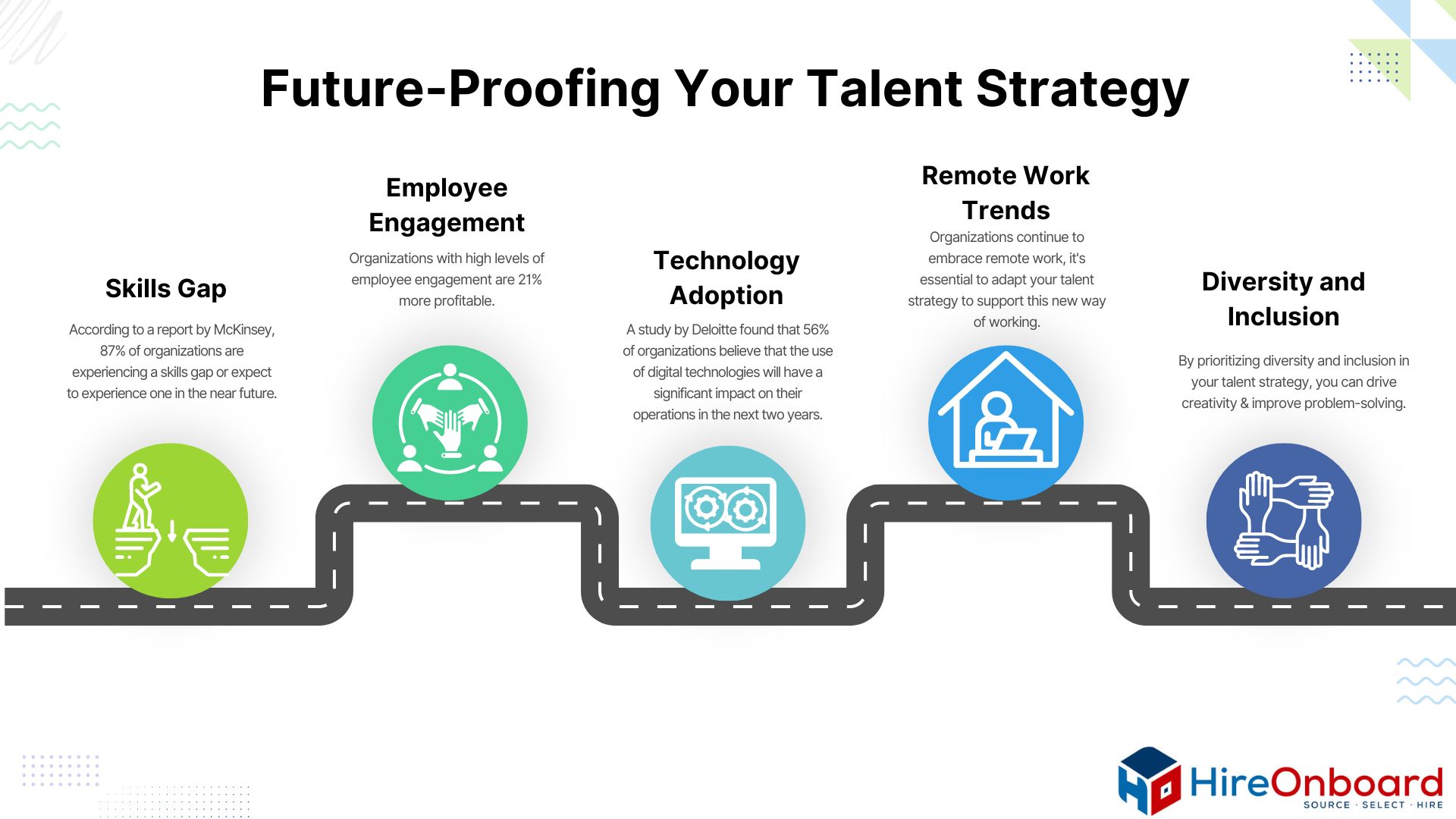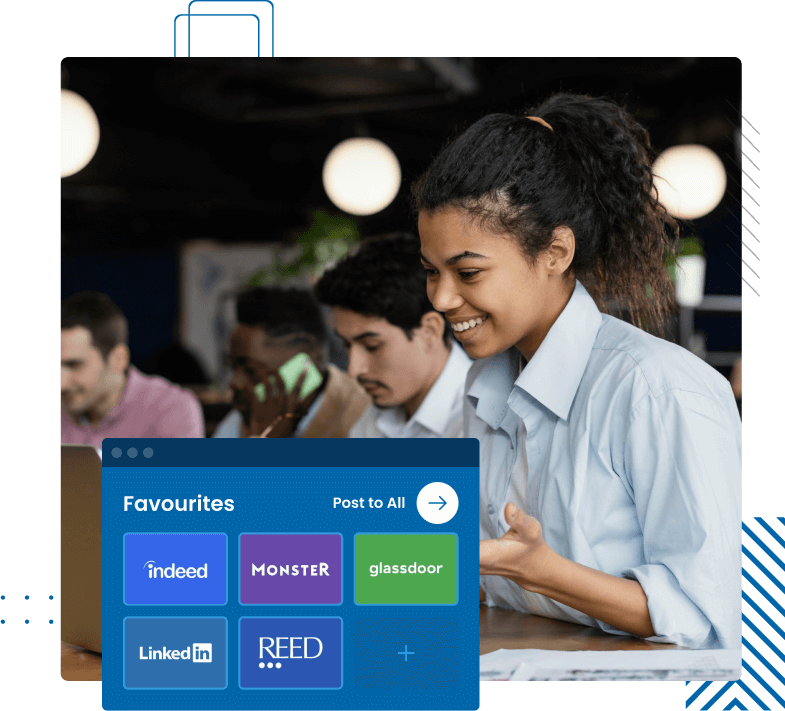In today’s fast-paced and ever-changing business environment, organizations must adapt and evolve to stay ahead of the curve. One critical aspect of this adaptation is future-proofing your talent strategy to ensure that your workforce remains equipped to navigate the challenges of tomorrow. Embracing change in the workplace is not just a nice-to-have; it’s a necessity for long-term success.
Here are some key statistics that highlight the importance of future-proofing your talent strategy:

Skills Gap
According to a report by McKinsey, 87% of organizations are experiencing a skills gap or expect to experience one in the near future. This underscores the need to continuously assess and develop the skills of your workforce to ensure they are equipped for the digital age.
Employee Engagement
Research has shown that organizations with high levels of employee engagement are 21% more profitable. By focusing on building a culture of continuous learning and development, you can increase employee engagement and retention, ultimately contributing to your bottom line.
Technology Adoption
A study by Deloitte found that 56% of organizations believe that the use of digital technologies will have a significant impact on their operations in the next two years. By investing in upskilling and reskilling your workforce, you can ensure that your employees are ready to leverage new technologies and drive innovation within your organization.
Remote Work Trends
The COVID-19 pandemic has accelerated the shift towards remote work, with 83% of employers now offering flexible work arrangements. As organizations continue to embrace remote work, it’s essential to adapt your talent strategy to support this new way of working and ensure that your employees have the tools and skills necessary to thrive in a virtual environment.
Diversity and Inclusion
Research has shown that diverse teams are more innovative and make better decisions. By prioritizing diversity and inclusion in your talent strategy, you can drive creativity, improve problem-solving, and foster a more dynamic and inclusive workplace culture.
In conclusion, future-proofing your talent strategy is not just about staying ahead of the competition; it’s about building a resilient and agile workforce that can thrive in the face of uncertainty and change.
By embracing change in the workplace and investing in the development of your employees, you can position your organization for long-term success in an increasingly complex and dynamic business landscape.
